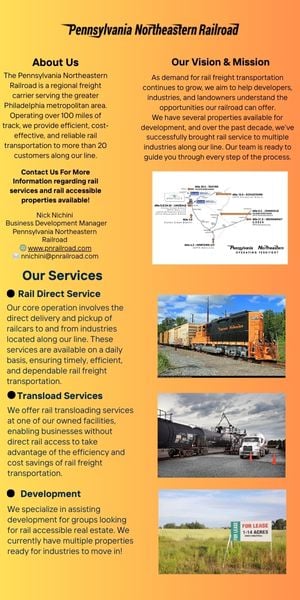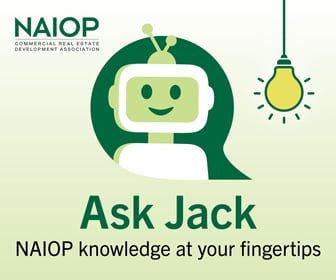CEO on Leadership: Molly McShane

The leader of The McShane Companies, headquartered in Rosemont, Illinois, talks about taking the reins of the 35-year-old family-owned business and focusing the firm on smart, sustainable growth.
Development: Could you tell us about your background and what led you to a career in commercial real estate?
Molly McShane: Being part of a family company, most people presume it was a foregone conclusion to go into the business, but nothing would be further from the truth. Like most people I meet in real estate, my path into this career wasn’t a direct one. After college I went into marketing, but quickly concluded it wasn’t right for me. My dad convinced me to give construction and real estate a try, because he thought I would really enjoy it and find it fulfilling. It’s an industry in which you can have such a big impact, and what you do really matters to people.
I joined the company knowing I had a lot to learn. I cut my teeth working on jobsites for McShane Construction, and simultaneously went to graduate school at night. I transitioned into real estate development when I went to work for one of our other companies, Conor, and now I lead all our businesses.
I absolutely love working in the industry — there are so many rewarding career opportunities. Our challenge is to make these opportunities more visible for more people.
Development: Only 40% of family-owned businesses survive to the second generation. What were your major challenges coming into the business and eventually leading it?
McShane: The dim statistics are well-known to those of us in family businesses. Being part of one is different because in addition to the complex set of business challenges, there are family relationships to care for. I think that open communication, empathy and respect are key to navigating the inevitable challenges that can arise within that context. We’ve spent a good amount of time over the years studying the issues commonly problematic to family businesses and have so far worked effectively to minimize them.
I learned very early on when I came to work for my dad, that many people may have pre-conceived notions of who you are and what your abilities are — whether they be positive or negative. My mindset has been to work hard, ask thoughtful questions and learn from the people around me. Let your work speak for itself, and lead with integrity.
Development: As CEO, what are your core areas of focus?
McShane: We are focused on smart, sustainable growth within all our businesses. To accomplish that, a fair amount of my attention is centered on our teams and our unique culture. People want more than just a paycheck, so we spend a lot of energy on providing tangible opportunities for career growth, supporting personal growth and making positive impacts in the communities in which we work.
Development: What qualities do you look for when hiring senior staff?
McShane: It sounds obvious, but an individual’s ethics come first. Everyone thinks of themselves as ethical, though, so it requires some digging to understand if you have a shared definition of ethical decision-making and behavior. Getting to know the candidate on a personal level is important. It also informs the level of cultural alignment that we share. One person — especially in a senior position — can have an enormous impact on the culture of the team. Once we are comfortable with the character of an individual and their strong functional expertise, we will then look for specific qualities such as interpersonal skills, communication skills and a forward-looking, strategic mindset.
Development: You were named CEO of The McShane Companies at a time of crisis with COVID-19 worsening. Could you talk about your challenges during this period and how you successfully navigated the company through this crisis?
McShane: We have 10 offices throughout the country, and our team members come from all sorts of different backgrounds and represent a variety of perspectives. As you might expect, there have been different reactions to the challenges we have faced over the last year and a half of the COVID pandemic.
It’s idealistic to think we’ll find consensus on all the issues we face together, but I believe it’s important to hear everyone’s perspectives and then make the best decision possible. In what has unfortunately turned into a highly emotional and polarized environment throughout the country, empathy and respect go a long way.
I am so proud of how our leadership team is managing these challenges in a very transparent, data-driven way. We have routinely gathered information and proactively communicated to employees what we know, and how it might affect them. Flexibility and adaptability have been instrumental, because no matter how well-thought-out our plan is, we inevitably get a new set of facts right before we implement it. We maintain an open mindset and expect our approaches to evolve over time.
Development: You have a reputation as an innovative leader who has spearheaded major strategic initiatives across McShane’s portfolio of services. How do you guide your team toward your new vision?
McShane: Most people aren’t resistant to new ideas, in my experience. In environments like ours that promote an entrepreneurial mindset, people want to grow and tackle new challenges. If change is necessary, folks need to understand why to embrace it.
Development: You have worked to create an inclusive and family-oriented environment at McShane. Could you tell us the impact this initiative has had on the company and its employees?
McShane: We’re all human beings with different stresses and sources of joy. We all have lives outside of work that are important to us. And we are all looking for that elusive work/life balance. We are happier when we can authentically bring our whole selves to work and participate in open communication and decision-making. When we respect that, we are more productive. People are more inclined to chip in when they can and ask for help when they need it.
Development: You have contributed your time and talent to NAIOP over the years. How has NAIOP helped you develop as a real estate professional?
McShane: I’ve been a NAIOP member for many years, and it’s been helpful for me at every stage of my career. Many of my fellow NAIOP Chicago board members from over the years are leaders in their own organizations. Together we’ve been able to tackle larger industry-wide challenges that wouldn’t be feasible on an individual basis.
Development: What is the best advice you have been given over the course of your career in real estate?
McShane: Surround yourself with smart people who aren’t afraid to speak up and disagree.
Development: What advice would you give someone entering the commercial real estate business today?
McShane: Be humble. Ask thoughtful questions. Put energy into authentic relationships. Learn about things outside of your job description. Engage in your community.
Development: Do you have any tips — specifically for women — coming into this still male-dominated business?
McShane: Don’t work for people who don’t value and support you at every life stage. Know what you are worth. Do not underestimate your qualifications. Actively sponsor other women.
Development: What are the most important lessons you have learned during your years in the business?
McShane: Take smart risks, instead of no risks.
Development: Leading McShane must be challenging. How do you relax during your off hours?
McShane: I find that both physical activity and outdoor time ease my stress. Channeling mental energy into movement is a good thing for me.
Ron Derven is a contributing editor for Development magazine.




